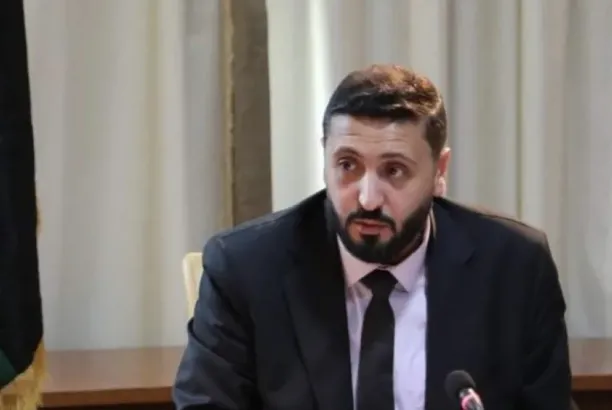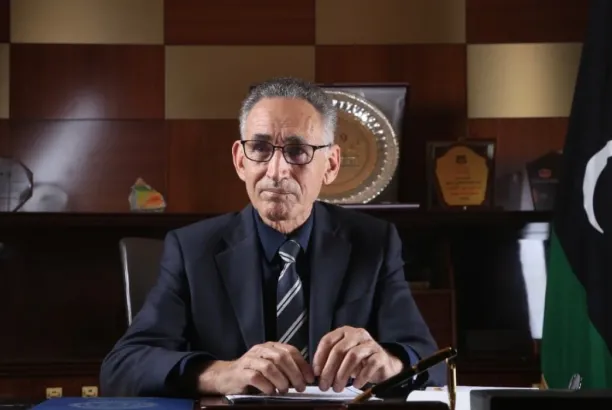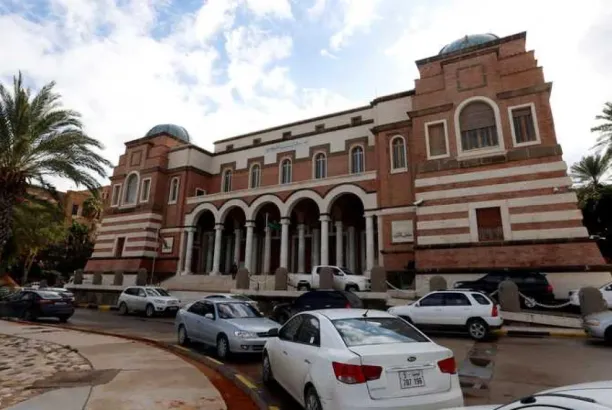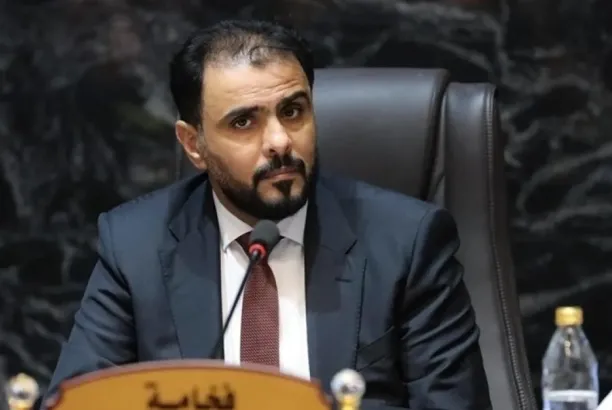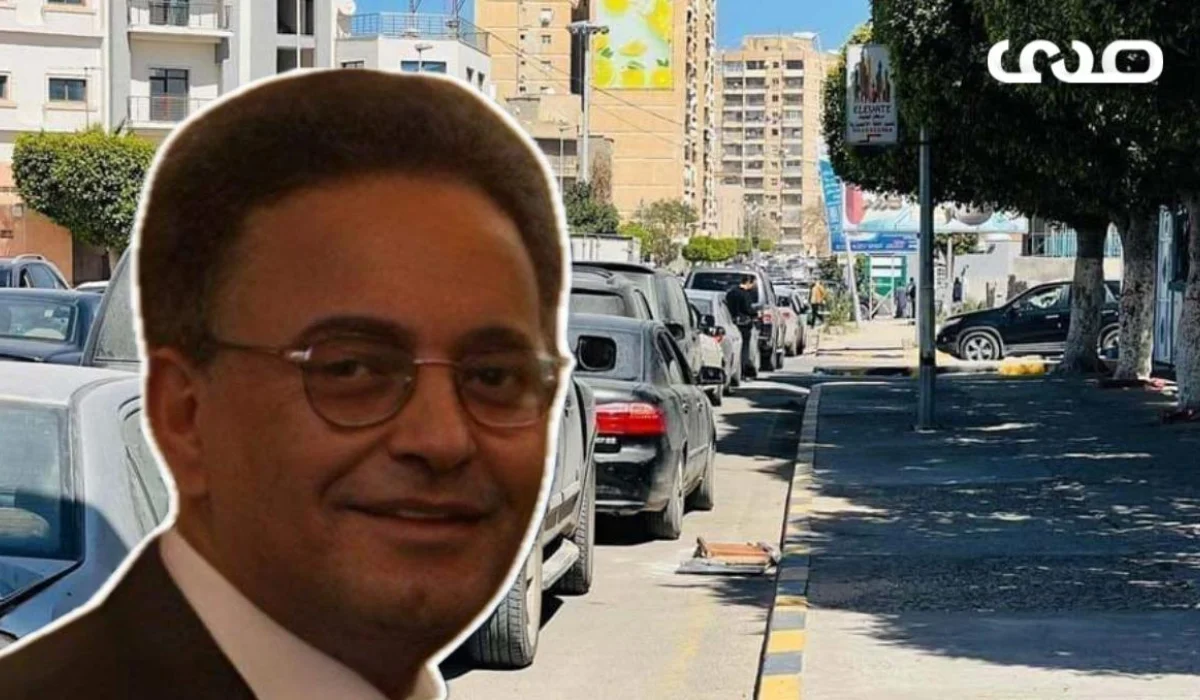
| News
Exclusive: Al-Hudairi Outlines Causes of Libya’s Fuel Crisis as Experienced, Integrity-Driven Leader Appointed to Head Brega Petroleum Company Amid Administrative Turmoil
The legal expert in the field of oil, Othman Al-Hudairi, told our source newspaper exclusively:
The fuel crisis in Libya is chronic and worsening day by day, with car queues stretching for kilometers like prayer beads in front of fuel stations across the country. It is one of the most prominent crises affecting the daily life of the Libyan citizen and resident, despite the country producing acceptable rates of crude oil reaching 1.2 million barrels per day.
Libya possesses the largest oil reserves in Africa and is the closest market to Europe in terms of export and proximity to major refineries owned by our partners in the Mediterranean. To unravel this puzzling riddle, one can look into the main causes of this dilemma and then address the solutions we see as appropriate.
He added that one of the causes is local and international smuggling: due to the large price difference between locally subsidized fuel and its price in neighboring countries, fuel smuggling across land and sea borders is widespread, with smuggling networks run by organizations supported locally and internationally, benefiting from weak monitoring and security instability.
Corruption and mismanagement: corruption inside fuel distribution companies in cities or on public roads, starting from Brega Petroleum Company’s depots in particular, passing through the International Marketing Department of the National Oil Corporation, which deals with brokers to supply products and contracts with them at the highest prices, raising the supply cost for the public treasury. There are also “phantom” fuel stations that receive large quantities of fuel (on paper) beyond their needs and do not distribute them to citizens, possibly diverting them outside approved distribution channels.
The political and executive institutional division and the multiplicity of oversight authorities east and west lead to poor coordination, resulting in unfair distribution and quantities exceeding actual needs without effective control.
Dilapidated infrastructure: the aging of refineries, including the Zawiya refinery, which is over 50 years old and does not meet local market needs, operating at no more than 50% of its capacity, despite producing up to 113% before 2011. Currently, it fails to cover local consumption, forcing the state to import fuel. Ras Lanuf refinery has stopped producing other types of fuel, contributing to the depletion of billions in hard currency from the public treasury. Other smaller refineries (Sirte, Tobruk, and Sarir) are very small and barely meet the needs of surrounding areas.
Weak distribution and oversight: Brega’s distribution system lacks effective electronic monitoring and transparency, making it easy to manipulate quantities among stakeholders, whether with major consumers or operational or phantom private stations.
Instability and security unrest: in some areas, fuel trucks, tankers, and stations are periodically subjected to attacks or road closures by armed groups.
Additionally, the large and unregulated financial subsidies borne by the state are exploited by certain individuals, entities, and smugglers for profit, benefiting all citizens and residents, which inflates consumption and strains the state budget. Some opportunists exploit it for personal gain during fuel supply, and the scandal of the adulterated gasoline quantities imported by the NOC’s Marketing Department and distributed by Brega to fuel stations is still fresh, with its repercussions continuing to damage the corporation’s credibility abroad.
As for the effective solutions to the fuel crisis, in my view, they are as follows:
- Combat smuggling effectively by creating an integrated electronic system to monitor fuel transportation from the source to official stations only.
- Activate border control by land and sea.
- Reform the subsidy system after a real economic study so citizens in the southern areas, east and west, are not harmed, along with providing a good transport network.
Replacing fuel subsidies with direct cash subsidies to needy citizens at this time would harm the already struggling citizen, even though some individuals advocate the cash subsidy idea, which has its pros and cons as we explained, and may reduce the incentive for smuggling at some stage.
- Weak management and oversight by the NOC over Brega greatly affects the fuel supply and distribution situation. There are endless suspicions regarding product procurement in the International Marketing Department, which we have warned about many times. It needs a major shake-up, reinforcement with highly qualified personnel, breaking the monopoly of individuals known for years of corruption, and addressing conflicts of interest within this department, which forms a network of corruption. The oil sector must not be politicized or subjected to the dominance of certain security, political, regional, or tribal entities as is the case now; it must operate under its laws, regulations, and statutes to ensure its professional and technical stability.
He added: rehabilitating and expanding refineries, rapidly developing the Zawiya refinery, and building new refineries on scientific and economic bases—not haphazardly—are essential to reduce reliance on imports.
Digitizing distribution: using electronic cards (such as smart cards) to control fuel dispensing and linking fuel stations to a central system to monitor sales.
Imposing transparency and accountability: publishing periodic reports on fuel quantities distributed to stations and major consumers and their costs, along with public accountability for officials involved in violations.
Community awareness: media programs warning of the dangers of fuel smuggling to the economy and encouraging citizens to report corruption and violations.
He concluded: everything we have mentioned above forms the cornerstone for solving the fuel crisis. We reiterate the appointment of an interim commissioner—a person with experience, integrity, and competence—to manage Brega Petroleum Marketing Company instead of the current administrative confusion, with oversight bodies fulfilling their duties according to the law without favoritism or bias. Otherwise, the phenomenon will reoccur.


